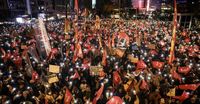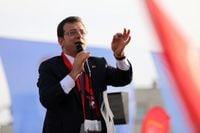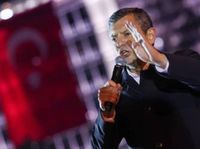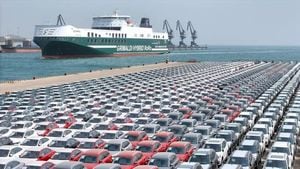On March 19, 2025, Istanbul Mayor Ekrem İmamoğlu was arrested at his home in a dramatic early morning raid, sparking widespread protests and international condemnation. İmamoğlu, a prominent political figure and a key challenger to Turkish President Recep Tayyip Erdoğan, faces serious corruption charges including bribery, extortion, fraud, and bid rigging, as well as accusations of aiding and abetting terrorism through alleged ties to the PKK, a Kurdish paramilitary organization. However, the terrorism charges were dismissed in court.
His arrest, described by many as politically motivated, has led to the largest wave of protests in Turkey in a decade. Thousands have taken to the streets daily, expressing their outrage and demanding İmamoğlu's release. The government’s response has been swift and severe, with police employing tear gas and water cannons to disperse crowds. Interior Minister Ali Yerlikaya reported that nearly 2,000 protesters have been arrested since the beginning of the unrest.
İmamoğlu's political career has been marked by a commitment to social democracy and public service, which resonated with the people of Istanbul. Elected mayor in 2019 after a contentious electoral process, he won a re-run election with a decisive margin, reflecting his popularity among the electorate. On the night of his re-election, he famously declared, "We have won and tomorrow will be a beautiful day that will smell of peace, humanity, brotherhood." His administration has focused on initiatives that support the underprivileged, including the distribution of milk to children and affordable meals through municipal restaurants.
In the wake of İmamoğlu’s arrest, the Turkish government has faced significant backlash not only domestically but also from international bodies. The European Commission released a statement questioning Turkey's commitment to democratic principles, stating, "Today’s detention of Istanbul mayor İmamoğlu and the arrests and charges brought against many others since the beginning of the year give rise to questions regarding Türkiye’s adherence to its long-established democratic tradition." This sentiment was echoed by the German Foreign Ministry, which emphasized that political contests should not be conducted through the courts and prisons.
As protests erupted across major cities like Ankara and Izmir, local authorities imposed five-day bans on demonstrations, citing public safety concerns. Yet, many view these actions as an attempt to stifle dissent and suppress opposition voices. Erdoğan, in response to the protests, claimed that the unrest was orchestrated by individuals seeking to destabilize the country, labeling the anti-corruption operation in Istanbul as a mere pretext for civil disorder.
İmamoğlu's arrest occurred just as he was poised to be nominated as the Republican People's Party (CHP) candidate for the upcoming 2028 presidential elections, a move that many see as a direct threat to Erdoğan's long-standing rule. The CHP had garnered significant support for İmamoğlu, with over 15 million votes cast in his favor during the party's primaries. His detention is perceived as a strategic maneuver by Erdoğan to eliminate a formidable rival in the political landscape.
In a further escalation of the situation, the Turkish government has reportedly throttled internet access, limiting communication and information sharing among protesters and the media. Many independent journalists covering the demonstrations have been arrested, raising concerns about press freedom in the country. Observers note that Erdoğan's administration has increasingly resorted to authoritarian measures to maintain control over political dissent since the failed coup attempt in 2016.
Historically, Erdoğan's rise to power has been characterized by a gradual consolidation of authority, with significant changes to the political landscape in Turkey. Since becoming president in 2014, he has expanded his powers considerably, particularly following the introduction of a presidential system in 2018 that abolished the office of prime minister. This shift has been accompanied by a crackdown on opposition voices, media censorship, and the jailing of political opponents.
İmamoğlu's arrest resonates with a broader narrative of political repression in Turkey, echoing Erdoğan's own experiences when he was imprisoned in 1998 for inciting religious hatred. Many analysts suggest that Erdoğan's actions against İmamoğlu could backfire, potentially elevating him to martyr status among the opposition and galvanizing further resistance against the government.
As the situation unfolds, the international community remains watchful. A delegation from the European Union, including Vice-President of the European Parliament Katarina Barley, visited İmamoğlu in prison, expressing solidarity with the Turkish opposition and calling for an end to the arrests of political figures. This visit underscores the growing concern over Turkey's trajectory towards autocracy and the erosion of democratic norms.
Despite the grim outlook, the protests have ignited a renewed sense of political engagement among citizens, reminiscent of the Gezi Park protests in 2013, which also saw a strong backlash from the government. As the protests continue, the resilience of the Turkish populace and their demand for democratic governance will be put to the test. The outcome of İmamoğlu's legal battles and the government's response to ongoing dissent will likely shape the future of Turkish politics in the years to come.







